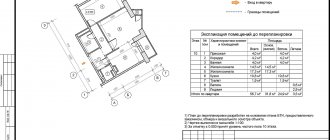What innovations does the 2021 dacha reform provide for?
Back in 2021, a legislative act was adopted regulating the conduct of gardening and horticultural activities. It was popularly called the “Dacha Constitution”, since it is he who now regulates the basic cultivation of agricultural crops at citizens’ personal dachas.
The first innovation he introduced was a clear delineation of land for growing plants for one’s own needs.
Now these are two types of plots:
- garden plot of land;
- garden plot of land.
Previously, there were four types of plots according to the types of permissible land use:
- for country house construction;
- summer cottage plot of land;
- for conducting gardening activities;
- for running a dacha farm.
Now they are all united under the term “garden plot”.
Citizens of the Russian Federation can use these two types of land for the following purposes:
- for recreation (leisure);
- for growing fruit trees, shrubs, and other fruit and vegetable crops.
IMPORTANT!!! There is one significant difference in the status of these lands - the location of individual residential development objects. It is now permissible to place real estate (the notorious country houses) only on plots of land for garden purposes.
There you can build houses intended for continuous residence of people. Another type of buildings allowed for construction on garden plots are garages. Finally, outbuildings can be placed on these lands. Outbuildings include not only cellars and sheds for storing harvested crops, as well as sheds for gardening equipment, but also wells. Baths also fell into this group of buildings. The list is open; new types of buildings can be added to it.
As for plots intended purely for gardening, houses for permanent residence, garden houses, garages, bathhouses and other buildings that are not directly related to the cultivation of crops cannot be erected. Here you can only build sheds and sheds for storing crops, dig cellars and compost pits. They do not need to be registered as immovable objects.
The difference between a residential and non-residential house on a summer cottage
On the other hand, if the house is being built after 2021 or has not previously been registered as residential, it will first have to be given the status of a residential building. Otherwise, you will not be able to register in it.
Area of premises of a residential building
- Expert opinion regarding the condition of the house.
- Application to the MFC or local administration (filled out on site).
- Passports of all property owners.
- Notarized consent of all property owners to change its status.
- Permission from the guardianship authorities if there are minors among the co-owners.
- Extract from the Unified State Register of Real Estate.
- Technical passport and cadastral passport.
- Legal documents.
If the owner ignores the amnesty and does not register the property, the consequences may be as follows:
Property needs to be legalized. This must be done due to the fact that, due to previously applicable regulations, many real estate properties were not registered. Citizens own plots and houses about which there is no information in the cadastre. This creates confusion in taxation, and difficulties arise when transferring property by inheritance.
Dacha amnesty
The State Duma decided that summer residents should be given more time to register their buildings, so it was decided to extend the “dacha amnesty” until March 1, 2021. It is necessary to understand that this is an everyday term, not a legal one. No. 93-FZ began to work on September 1, 2006. At first it was established that the amnesty would last until March 1, 2018, but not all property owners managed to register them.
You may like => Benefits for large families 2021 in the Sverdlovsk region
- garden houses and cottages used for long-term or permanent housing;
- baths on foundations and bath complexes;
- capital garages;
- outbuildings on a foundation (sheds, terraces, gazebos).
According to the 2021 legislation, what now applies to a country house?
In law, a country house is called a garden house. Such a building cannot now be used for year-round living. It is intended only to satisfy the needs of summer residents of a domestic and other nature. Accommodation in country houses is possible only for periods of rest or agricultural work. They are erected only on garden plots of land. Such buildings are unacceptable on garden plots. It is impossible to register rights to such buildings. They are illegal from the start and will be demolished by court decision.
IMPORTANT !!! If the garden plot already contains some kind of building for citizens to live in, as well as a bathhouse or garage, then there is no need to re-register them.
On garden plots you can build not only a country house, but also a residential building intended for continuous occupancy of people. However, its height should not exceed 20 m.
Thus, the new law eliminates the concept of a country house and replaces it with the term “garden house”. The Dacha Constitution clearly defines that this type of building provides only temporary residence for the period of growing crops.
What you may not register
- It may be recognized as an unauthorized construction, which means a fine will be imposed on the developer, and the building will have to be demolished.
- Even if the administration does not make any claims about the house, an unregistered house does not legally exist. That is, no transactions can be made with him. It cannot be sold, donated, long-term leased, or left as an inheritance.
Content
The registration procedure has many nuances. Do you want to know what needs to be registered on your summer cottage and avoid difficulties? Sign up for a free consultation with a Geomer Group expert by phone ☎.
May 14, 2021 vektorurist 80
Share this post
- Related Posts
- Can they reduce the mortgage interest rate at Sberbank if you have many children?
- Is it possible to sell a veteran's ID to a bank?
- Minimum living wage in the Murmansk region 2021 for disabled people of group 3
- If the period of deprivation of rights has ended and you haven’t taken your license, can you drive in 2021?
House in SNT, is this a residential or non-residential purpose of the property?
Urban Planning Code of the Russian Federation, the current legislation provides for a minimum of documents required for state registration of rights - a declaration on the property, a title document for a land plot (a certificate of a citizen’s right to a land plot or an act on the provision of a given land plot, issued (published) by a government body or local government, a court decision recognizing ownership of a plot, a certificate of inheritance, a contract of sale or donation of a plot, etc.) and a document confirming payment of the state fee. On January 1, 2017, Federal Law No. 218 of July 13, 2015 “On State Registration of Real Estate” will come into force, which amends the simplified procedure for registering rights to newly created objects.
How to determine the status of a garden house: residential or non-residential?
But I could be wrong, I’m not an expert, this is at the “heard somewhere” level. In general, the problem, judging by a quick glance on Google, is widespread: https://www.forumhouse.ru/threads/194126/ Saher_Sinka16AT 05/27/2014, 20:07 # Thanks for the link, a lot has become clearer. Yes, Victor, you are mistaken. The land can be used for settlements, but VRI can be a dacha or gardening. 4 TS - why do you need to convert it to residential? Do you want to register there? There seem to be two options - the first is by court, but there must be all communications and the house must be permanent (that is, suitable for year-round living), or change the VRI, you need to go to the locals and find out from them how difficult and costly this will be specifically on your land Ameixa 05/29/2014, 15:12 # And where is the requirement for the presence of all communications stated? In villages they still live with a stove, a well and a toilet like a toilet. And everyone is registered at their place of residence.
Transfer of residential premises to non-residential premises
Legal consultations by phone
+7 (free for MSK)
Legal consultations by phone
+7 (free for St. Petersburg)
When we take on the arrangement and organization of our business, we are faced with the problem of premises. During the construction of an urban area, a city plan is created, which provides for new developments, in the form of residential areas or large office buildings, as the addition of new areas of the city. Difficulties arise with small shops, notary offices, real estate agencies and others. They do not need separate buildings:
- firstly, the construction of a new building is more expensive;
— secondly, according to the approved plan, it will not be possible to build up already built areas indefinitely. They simply won’t issue a building permit. The reason is banal - you spoil the appearance of the city, there is no connection and there are no conditions for the construction of a new building.
The solution is simple - you buy a residential property, and the process of moving out of the residential area begins. The main thing to remember here is:
· The premises must allow a separate exit to the street.
· A mandatory condition is the written consent of the neighbors, especially with regard to the roof that will be above the entrance to the premises.
· Located on the ground floor, in the case where the proposed office or store is located above, the premises below it should be non-residential in nature.
· The presence of one owner, does not act as collateral, and is not under lease at the time of withdrawal.
The transformation is carried out by the local government body, in larger cities - by the district administration in accordance with the Housing Code of the Russian Federation, Article 22.
List of documents:
1. Application for transfer of premises (only from the owner).
2. Title documents (copies are notarized).
3. Title documents of the company (the owner is not a specific person).
4. Technical plan of the premises and technical description.
5. House plan.
6. Project for reconstruction/redevelopment of premises.
7. Written consent of neighbors (nearby adjacent premises) regarding the provision of common land for the entrance, redevelopment affecting the load-bearing walls of the building, ventilation ducts.
8. Project for gas removal and energy supply.
9. Connection to sewerage systems and water pipes. 10. Calculation based on noise. If you locate a cafe or bar in a residential building, you will have to take additional noise insulation measures so as not to violate established standards.
Looks pretty simple. Until you start knocking on the doorsteps of local governments. You need to start converting residential premises to non-residential stock by drawing up a project by contacting a special company; this can be quickly resolved. The most interesting thing comes next, because it is necessary to go through everything from the housing and communal services structure to the gas service, and without energy supervision there is also nowhere.
Transfer of premises from non-residential to residential. The company (factory) owns the building, and it needs to accommodate its employees. The company decided to convert the building, which was simply empty, into residential premises. The selected premises must meet the established standards in accordance with Art. 23-24 Residential Complex of the Russian Federation, have auxiliary rooms. What distinguishes residential premises from non-residential premises:
— presence of a bath;
- toilet;
- kitchens;
- conditions for family living.
The procedure is similar to that previously described. Although here the owner will have to draw up a more detailed plan for redevelopment of the building. Preparation of documents for each rebuilt room (dormitory), apartment (issuance of ownership to employees on a permanent basis).
Of course, energy supply, water supply and gas pipeline systems are being established in such premises. Sewerage is being installed. Coordination is carried out with each of these types of structure.
Another nuance is added - the act of putting this premises into operation as a residential one.
The list of documents is similar.





